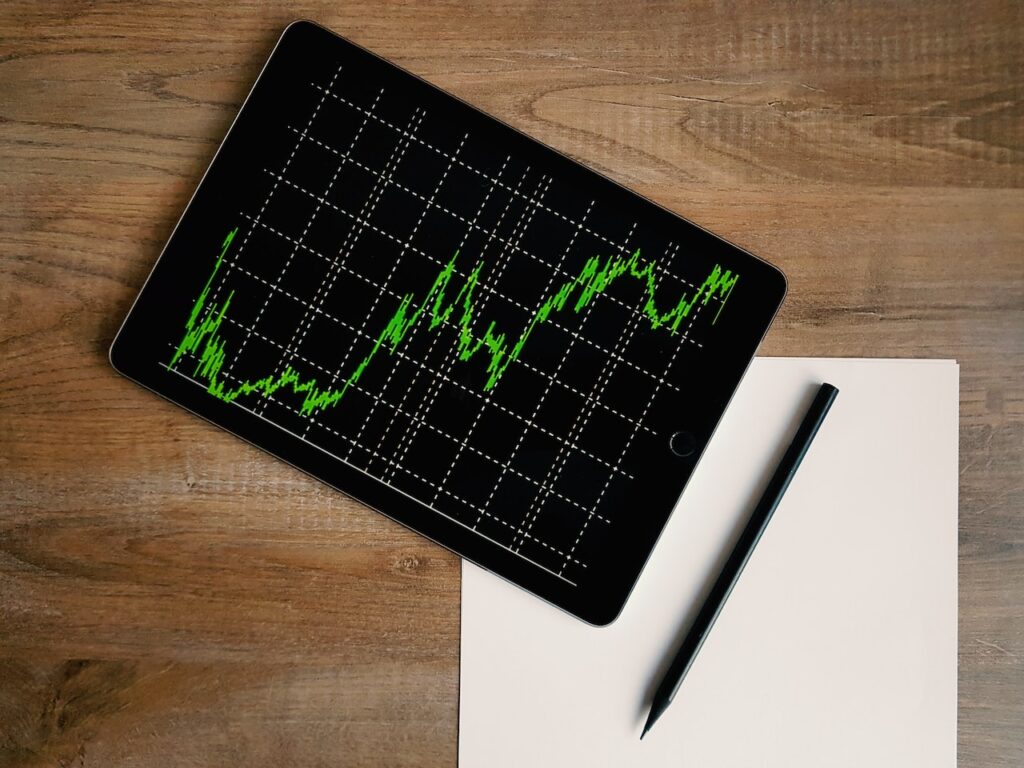1. Introduction to Forex Trading
Forex trading, also known as foreign exchange trading, is a decentralized global market where participants trade currencies. It offers immense potential for individuals to generate profit. However, for beginners, it can be a challenging endeavor filled with pitfalls and common mistakes. Understanding and avoiding these mistakes is crucial for aspiring forex traders to increase their chances of success. In this article, we will explore the common forex trading mistakes beginners often make and provide insights on how to avoid them. By gaining awareness and implementing the right strategies, novice traders can navigate the forex market with confidence and improve their trading outcomes.
Common Forex Trading Mistakes to Avoid for Beginners
1. Introduction to Forex Trading
Understanding the Basics of Forex Trading
Forex trading, also known as foreign exchange trading, involves buying and selling currencies to make a profit. It is the largest financial market in the world, with trillions of dollars being traded every day. The goal of forex trading is to capitalize on the fluctuations in currency prices and make profitable trades.
The Potential Benefits and Risks of Forex Trading
Forex trading offers several potential benefits, such as high liquidity, 24/5 market access, and the ability to profit in both rising and falling markets. However, it’s important to recognize the risks involved. Forex trading is highly volatile and can result in significant financial losses if not approached with caution. Understanding and managing these risks is crucial for beginners.
2. Importance of Avoiding Common Mistakes
Mistakes are a part of learning, but in forex trading, they can be costly. Avoiding common trading mistakes is essential for beginners to safeguard their capital and increase their chances of success. By learning from the experiences of others, you can save yourself from unnecessary headaches and financial setbacks.
3. Lack of Knowledge and Research
The Significance of Forex Education
One of the biggest mistakes beginners make is diving into forex trading without sufficient knowledge and education. It’s important to invest time in learning the basic principles, terminology, and trading strategies. Forex education can come in various forms, including online courses, books, webinars, and demo accounts. Building a strong foundation of knowledge will help you make informed decisions and navigate the market with confidence.
Importance of Understanding Fundamental and Technical Analysis
To make informed trading decisions, it’s vital to understand both fundamental and technical analysis. Fundamental analysis involves examining economic indicators, political events, and news that may impact currency prices. Technical analysis, on the other hand, involves studying price charts, patterns, and indicators to identify trends and potential entry or exit points. A combination of both approaches can provide valuable insights for making successful trades.
4. Emotional Trading Decisions
The Role of Emotions in Forex Trading
Emotions can cloud judgment and lead to irrational trading decisions. Fear of missing out (FOMO), greed, and panic are common emotions that can sabotage your trading strategy. It’s crucial to understand the impact of emotions on your decision-making process and develop strategies to manage them effectively.
Common Emotional Mistakes to Avoid
Some common emotional mistakes to avoid include overtrading, revenge trading (trying to recover losses by taking impulsive trades), and neglecting risk management. Setting clear goals, following a trading plan, and using stop-loss orders can help in reducing emotional biases and ensuring disciplined trading.
Remember, forex trading is a journey, and mistakes are part of the learning process. By educating yourself, avoiding common pitfalls, and managing your emotions, you can increase your chances of success in this exciting and dynamic market. Happy trading!
5. Overtrading and Impatience
Understanding Overtrading and Its Consequences
Oh, overtrading. It’s like that tempting dessert buffet at a fancy restaurant – you just want to try everything! But in the world of forex trading, overtrading can lead to some serious financial indigestion.
Overtrading occurs when you make too many trades without proper analysis or strategy. It’s like going on a shopping spree without checking your bank account balance – it might feel good in the moment, but it can quickly turn your trading account into a sad, empty wallet.
The consequences of overtrading are not pretty. You could end up making impulsive decisions based on emotions rather than logic, resulting in losses that could have been avoided. It can also lead to exhaustion and burnout, leaving you feeling like a forex trading zombie.
Tips to Avoid Overtrading and Develop Patience
So, how can you avoid the overtrading trap and develop the patience of a Zen master? Here are a few tips to keep you on the right track.
1. Stick to your trading plan: Before entering the forex market, have a clear plan with defined entry and exit points. This will help you resist the urge to make impulsive trades based on emotions alone.
2. Set realistic goals: Don’t expect to become a forex millionaire overnight. Set achievable goals and give yourself time to grow as a trader. Rome wasn’t built in a day, and neither will your trading skills.
3. Practice discipline: It’s easy to get caught up in the excitement of the forex market, but discipline is your best friend. Stick to your trading strategy, avoid chasing after every shiny trade, and stay focused on your long-term goals.
Remember, patience is a virtue in forex trading. Take a deep breath, resist the urge to overtrade, and let your trading strategy work its magic.
6. Neglecting Risk Management
The Importance of Risk Management in Forex Trading
Imagine you’re on a roller coaster without a seatbelt – a thrilling ride, but also a recipe for disaster. Neglecting risk management in forex trading is like taking that roller coaster ride without any safety precautions.
Risk management is crucial in forex trading because it helps protect your trading capital from potential losses. It’s like having a safety net that keeps you from falling too hard when the market takes a downturn.
By setting stop-loss orders and proper position sizing, you can limit the amount of money you’re willing to risk on each trade. This way, even if a trade doesn’t go as planned, you won’t find yourself sobbing in a corner wondering where it all went wrong.
Common Risk Management Mistakes to Avoid
While risk management is essential, it’s also important to avoid some common mistakes that even seasoned traders can fall victim to. Here are a few blunders to watch out for:
1. Putting all your eggs in one basket: Diversify your trades and don’t allocate all your trading capital to a single currency pair. Different pairs behave differently, and diversification can help minimize your exposure to risk.
2. Ignoring stop-loss orders: They may sound like a nagging parent, but stop-loss orders are there to protect you. Don’t be stubborn and ignore them. Trust their wisdom and let them do their job.
3. Revenge trading: We get it, it’s tempting to try and win back your losses after a bad trade. But revenge trading is like pouring gasoline on a fire. It only leads to more losses and unnecessary stress. Take a break, review your strategy, and come back when you’re in a better state of mind.
Remember, risk management is your safety net in the forex market. Don’t neglect it, and you’ll be better prepared to handle the ups and downs of trading.
7. Following Unreliable Sources and Strategies
Evaluating and Selecting Reliable Sources of Information
In the world of forex trading, information is power. But not all sources of information are created equal. Just because someone on the internet claims to have the secret formula for success doesn’t mean you should blindly follow their advice.
When it comes to selecting reliable sources of information, it’s important to do your due diligence. Look for reputable websites, read reviews, and consider the credibility of the author or organization providing the information. Don’t be fooled by flashy promises or get-rich-quick schemes – they’re often just empty promises wrapped in a shiny package.
The Dangers of Blindly Following Trading Strategies
Imagine you’re at a party and someone says, “Hey, try this amazing dance move!” Without questioning whether they have any dance skills, you start mimicking their every move, only to realize they have two left feet. Blindly following trading strategies can have a similar effect – you might end up stumbling and falling flat on your face.
Trading strategies are not one-size-fits-all solutions. What worked for someone else may not work for you. Remember, you’re unique, just like a unicorn (minus the sparkles). Instead of blindly following others, take the time to understand different strategies, test them out, and adapt them to fit your own trading style.
Use reliable sources as a starting point, but always question and analyze the information before implementing it into your own trading strategy. By doing so, you’ll avoid the dangers of blindly following strategies that may not align with your goals or risk tolerance.
8. Not Maintaining a Trading Journal
The Benefits of Keeping a Trading Journal
Picture this: you’re trying to retrace your steps after a night out, but your memory is as reliable as a broken GPS. Now imagine trying to improve your trading skills without any record of your past trades – it’s like navigating a foggy forest without a map. That’s where a trading journal comes to the rescue.
Keeping a trading journal has several benefits. It helps you track your progress, identify patterns, and learn from your past mistakes. It’s like having a personal coach who can analyze your trading performance and give you valuable feedback.
What to Include in Your Trading Journal
So, what should you include in your trading journal? Here are a few essential elements:
1. Trade entry and exit points: Record the details of each trade, including the currency pair, entry price, exit price, and any stop-loss or take-profit levels.
2. Trade rationale: Write down the reasons behind each trade. What analysis or indicators led you to enter the trade? This will help you evaluate the effectiveness of your decision-making process.
3. Emotional state: Note your emotional state before, during, and after each trade. Emotions can play a significant role in trading, and understanding how they affect your decisions can help you manage them better.
4. Lessons learned: Reflect on each trade and identify any lessons or insights gained. Did you make a mistake? Was there something you could have done differently? Write it all down to avoid making the same mistakes in the future.
By maintaining a trading journal, you’ll have a valuable record of your trading journey. It will not only help you improve as a
In conclusion, forex trading can be a rewarding venture for beginners, but it is essential to be aware of the common mistakes that can hinder success. By educating oneself, practicing sound risk management, and avoiding emotional decision-making, novice traders can improve their chances of achieving profitable trades. Additionally, maintaining a trading journal and relying on reliable sources and strategies can further enhance trading skills. Remember, forex trading is a journey that requires continuous learning and adaptation. By avoiding these common mistakes, beginners can set themselves on a path towards becoming successful forex traders.
FAQ
1. Can I start forex trading without any prior knowledge or experience?
While it is technically possible to start forex trading without any prior knowledge or experience, it is not advisable. Lack of knowledge and understanding can lead to costly mistakes and losses. It is crucial to educate yourself about forex trading, learn the basics, and understand the fundamental and technical analysis before diving into live trading.
2. How can I control my emotions while trading?
Controlling emotions while trading is essential for success. Some strategies to manage emotions include developing a trading plan, sticking to a predetermined risk-reward ratio, practicing patience, and avoiding impulsive decisions. It is crucial to be aware of your emotional state while trading and take breaks if needed.
3. How do I identify reliable sources of information for forex trading?
Identifying reliable sources of information is crucial for making informed trading decisions. Trusted sources include reputable financial news websites, economic calendars, and official announcements from central banks. Additionally, it is advisable to follow experienced traders or join reputable forex communities where knowledge is shared and verified.
4. Why is risk management important in forex trading?
Risk management is vital in forex trading as it helps protect your capital and minimize losses. Implementing risk management techniques, such as setting stop-loss orders, using appropriate position sizing, and diversifying your portfolio, allows you to manage and control the level of risk you are willing to take in each trade.

AdHang.com is the No.1 agency for digital marketing in Nigeria and the first Internet public enlightenment agency in Africa. AdHang has everything needed to achieve your digital marketing objectives and goals. From strategic digital marketing, a tactical approach to employing advanced digital marketing tools and technologies, using seasoned marketers with decades of marketing communications experience.









Comments